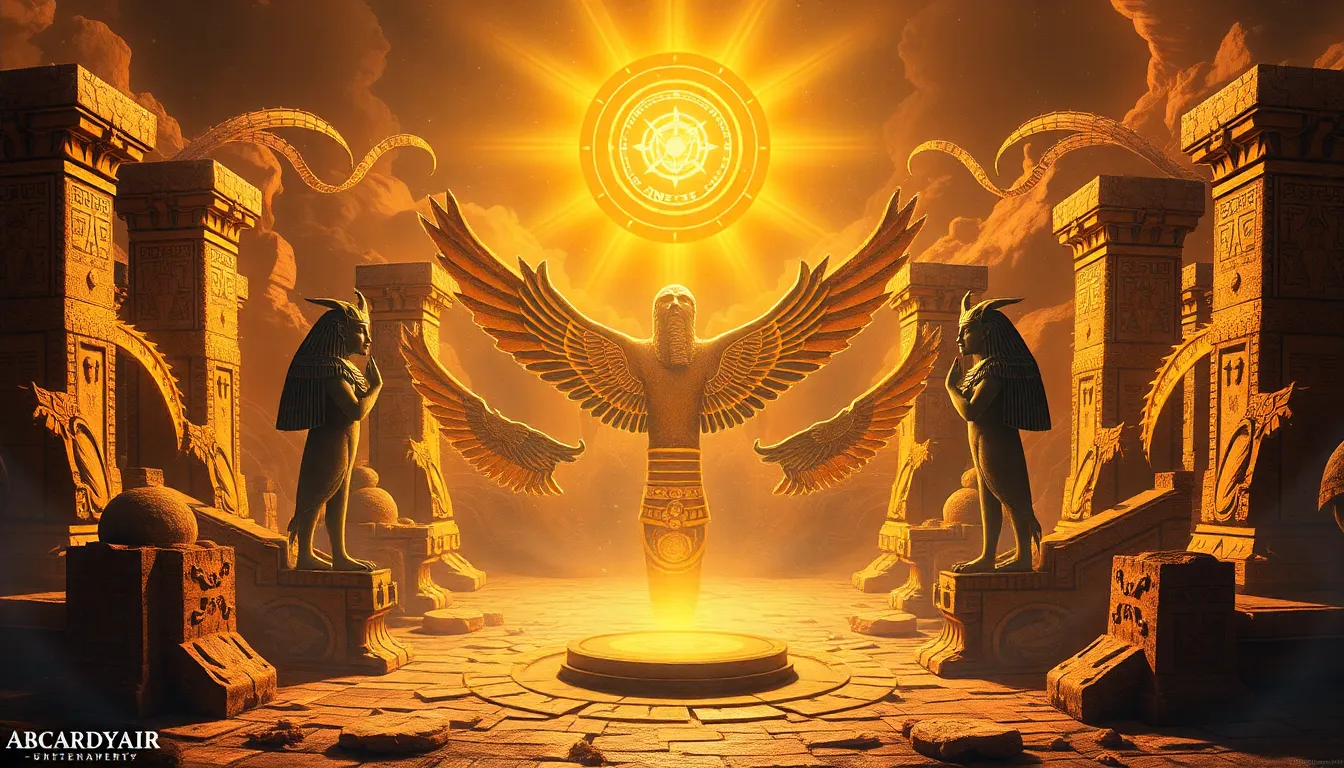The Spiritual Legacy of Ancient Egyptian Alchemy
I. Introduction
Alchemy in ancient Egypt was a profound and intricate practice that transcended mere chemical experimentation. It encompassed a spiritual journey aimed at personal transformation and the attainment of higher knowledge. Alchemy was not just concerned with the transmutation of metals; it was deeply rooted in the philosophical and religious beliefs of the Egyptians, reflecting their understanding of the cosmos and the divine.
Historically, alchemical practices in Egypt date back to the early dynastic periods, blending seamlessly with their religious rituals and mythological narratives. The significance of these practices lies in their ability to provide insights into the Egyptians’ worldview, their connection to the divine, and their quest for immortality.
This article aims to explore the spiritual legacy of ancient Egyptian alchemy, examining its foundations, symbols, deities, and enduring influence on later traditions and modern spiritual movements.
II. The Foundations of Ancient Egyptian Alchemy
The origins of alchemical thought in ancient Egypt can be traced to the civilization’s rich tapestry of mythology, religion, and philosophy. The Egyptians believed in a cosmos where everything was interconnected, and alchemy was a means to access and manipulate these connections.
Key texts such as the Emerald Tablet serve as foundational sources that encapsulate the principles of alchemical thought. This text, attributed to Hermes Trismegistus, emphasizes the unity of the material and spiritual worlds and the process of transformation.
Alchemy in ancient Egypt was closely tied to religion and philosophy. The Egyptians believed that the process of alchemical transformation mirrored the divine order of the universe, and thus, practitioners often sought to align themselves with these cosmic principles.
III. Symbols and Symbols in Alchemical Practices
Symbols played a crucial role in ancient Egyptian alchemy, serving as both tools and representations of deeper spiritual truths. Common symbols included:
- Ouroboros: The serpent eating its own tail, symbolizing eternity and the cyclical nature of life.
- Ankh: The symbol of life, representing immortality and the connection to the divine.
- Lotus: A symbol of rebirth and spiritual awakening, often associated with the sun and creation.
The role of symbolism in spiritual transformation cannot be overstated. Each symbol carried layers of meaning that guided the practitioner on their alchemical journey. For instance, the Ouroboros represents the idea of death and rebirth, echoing the mythological themes of Osiris and his resurrection.
Interpreting these alchemical symbols within the context of Egyptian mythology reveals a rich tapestry of beliefs that intertwine the material and spiritual realms, emphasizing the importance of transformation in achieving enlightenment.
IV. The Role of Deities in Alchemical Processes
In ancient Egyptian alchemy, deities played a pivotal role in guiding and facilitating the alchemical processes. Key deities associated with alchemy include:
- Thoth: The god of wisdom and writing, often credited with the creation of alchemical knowledge.
- Isis: The goddess of magic and healing, who represented the nurturing aspects of transformation.
- Osiris: The god of the afterlife and resurrection, embodying the themes of death and rebirth.
The spiritual significance of these deities in alchemical rituals was profound. Practitioners often invoked these gods to seek guidance, protection, and blessings for their transformative endeavors. Divine intervention was perceived as essential for achieving the desired results in the alchemical process, reflecting the Egyptians’ belief in the interconnectedness of the divine and human realms.
V. The Alchemical Path to Spiritual Enlightenment
The concept of personal transformation and rebirth lies at the heart of ancient Egyptian alchemy. Practitioners viewed alchemy as a spiritual path, a means to achieve higher states of consciousness and enlightenment.
Alchemical practices, such as meditation, visualization, and ritual, were employed as tools for achieving these spiritual goals. The process of transformation was seen as a journey toward the divine, mirroring the mythical death and resurrection of Osiris.
There are notable parallels between alchemical processes and spiritual journeys, including:
- The necessity of purification and cleansing.
- The integration of opposites, such as male and female energies.
- The pursuit of unity with the divine.
These elements illustrate how ancient Egyptians understood alchemy not just as a physical practice but as a holistic approach to spiritual development.
VI. Influence of Ancient Egyptian Alchemy on Later Traditions
The transmission of alchemical knowledge from ancient Egypt to other cultures significantly impacted the development of alchemical thought. The Greeks and Hellenistic scholars were particularly influenced, integrating Egyptian concepts into their philosophical frameworks.
During the medieval period, alchemical traditions further evolved, with many alchemists drawing inspiration from Egyptian texts and practices. The Renaissance saw a resurgence of interest in ancient knowledge, with figures like Paracelsus and alchemical societies reviving Egyptian principles.
Today, the relevance of Egyptian alchemical principles continues in modern spirituality, emphasizing transformation, the pursuit of knowledge, and the integration of material and spiritual practices.
VII. Modern Interpretations and Revivals of Egyptian Alchemy
In recent years, there has been a growing contemporary interest in ancient alchemical practices, with many spiritual movements incorporating these concepts into their teachings. Modern interpretations often focus on the psychological aspects of transformation, drawing parallels between ancient alchemical processes and modern self-development practices.
Various resources, books, and online communities are dedicated to the study of Egyptian alchemy, offering insights into its practices, symbolism, and spiritual significance. This revival encourages individuals to explore the depths of their own spiritual journeys through the lens of ancient wisdom.
VIII. Conclusion
The spiritual legacy of ancient Egyptian alchemy is a rich and intricate tapestry that weaves together themes of transformation, the divine, and the quest for knowledge. Understanding alchemy provides valuable insights into the cultural and spiritual dimensions of ancient Egyptian civilization.
As we reflect on the importance of alchemy within this context, we are reminded of the timeless nature of its teachings. The principles of transformation and spiritual awakening continue to resonate today, inviting us to explore and appreciate the profound heritage of ancient Egyptian alchemy.




